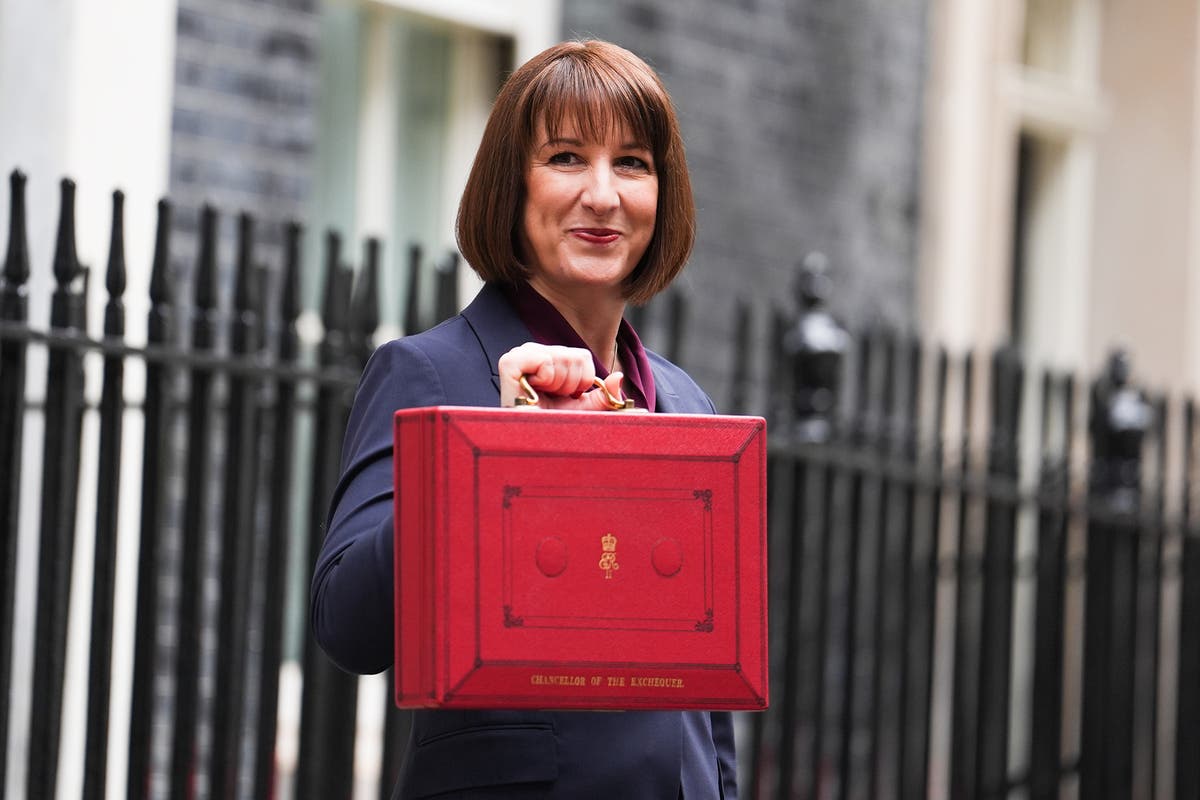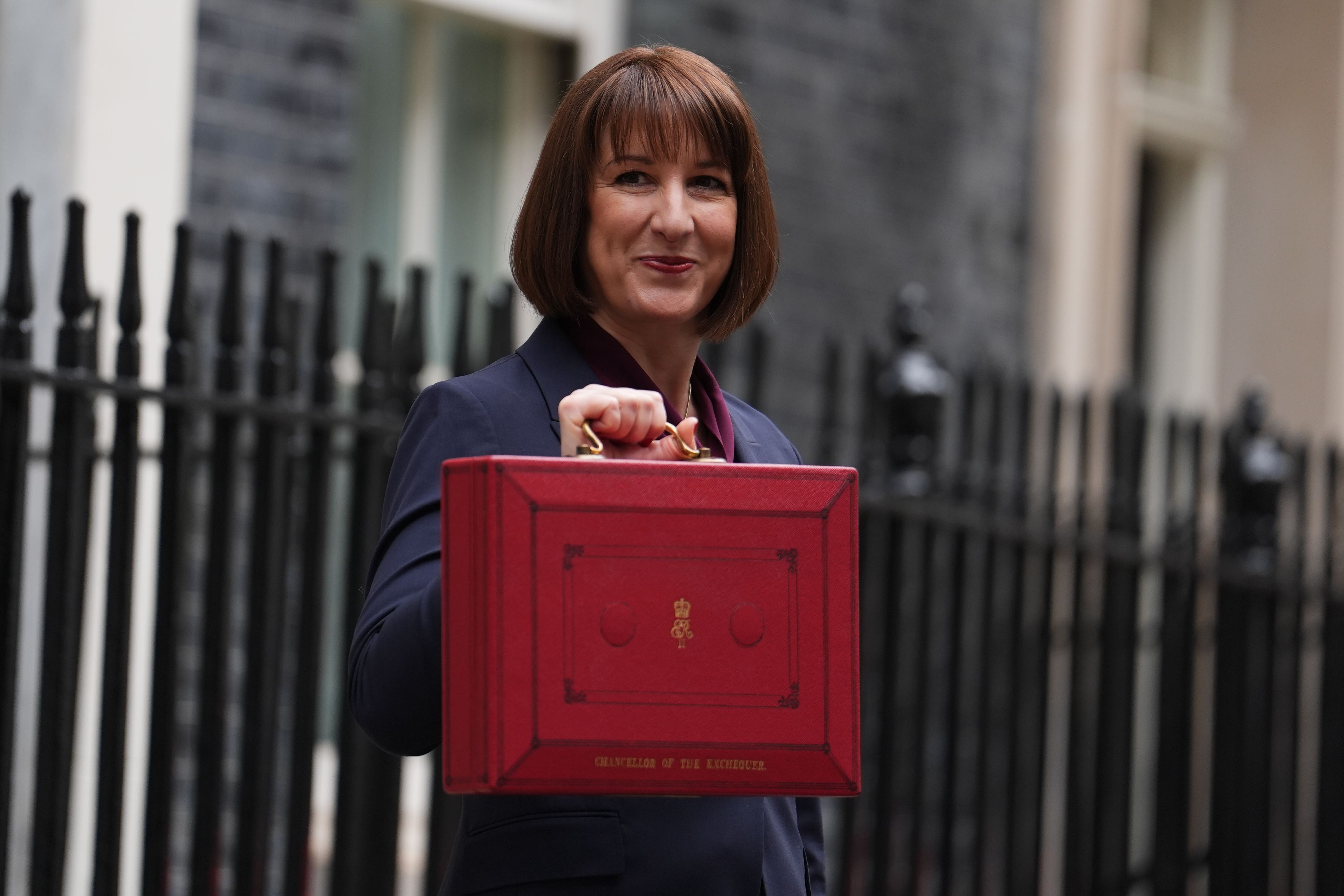Bussiness
Reeves accused of business ‘betrayal’ as top bank warns over tax hikes

Rachel Reeves’s increase in employer national insurance contributions (NICs) will hit workers’ living standards, Barclays has warned, amid growing backlash over the tax hike.
It comes as leaders of Britain’s biggest business organisations accused the Labour government of “betrayal”.
Economists at the bank said the policy would cause real incomes to take a hit, as companies pass on the cost of the levy through lower pay rises and higher prices. This, they said, will leave people feeling poorer as prices rise faster than wages.
Despite a manifesto pledge not to increase taxes for working people – including NICs, income tax and VAT – the chancellor increased employers’ NICs from 13.8 per cent to 15 per cent at the Budget. She also reduced the threshold at which employers start paying the tax, slashing it from £9,100 per year to £5,000.
In a note to clients seen by The Daily Telegraph, economists at the bank said: “We expect the additional costs implied by changes to employer NICs to lead to lower real incomes, through a combination of higher inflation and lower wages.”
Meanwhile, the prime minister has been urged to take “decisive action” to restore business confidence following the decision to increase employer NICs – something business groups have described as a “betrayal”.
The chancellor argued that the policy, which is expected to raise more than £25bn for the Treasury, does not breach Labour’s manifesto commitment because it does not show up on employees’ payslips.

However, businesses have urged the government to change course, warning that they will be forced to “tighten their belts” as a result of the policy and claiming that some are facing a sevenfold rise in their bills as a result.
John Longworth, chair of the Independent Business Network, described the Budget as “anti-growth”, while Dr Roger Barker, director of policy at the Institute of Directors, said the increase in employer NICs takes “no account of whether a business is profitable or not”.
It comes after hospitality bosses wrote a letter to the chancellor warning that the changes are “regressive in their impact on lower earners”.
Mr Longworth told The Independent that Sir Keir Starmer has “betrayed himself and the nation with his first Budget”.
“He and the chancellor persistently stated (correctly) that wealth creation and growth are the No 1 priorities on which all else depends. The Budget and other policies are anti-growth and will therefore fail,” he said.
He warned that the NICs increase will “either cause job losses, wage depression, or lead to underinvestment as a consequence of profit loss”.
Alex Veitch, director of policy at the British Chambers of Commerce, said the combined impact of the NIC increase and the rise in the national living wage means that some firms are looking at a sevenfold increase in their bills.
Ms Reeves raised the minimum wage by 6 per cent, handing a pay rise to more than a million workers on low incomes.
“Inevitably that means [businesses] are reassessing their plans around investment and recruitment in the short term, as they tighten their belts,” Mr Veitch said.
“What they now need to see from the government is quick, clear and decisive action to show it understands the difficulty and is looking at ways to make their lives easier. That means a quicker planning system, faster grid connectivity, simpler ways to export, big improvements to infrastructure, and an industrial strategy that supports them to grow.”
Meanwhile, Dr Barker said the policy is a “major blow for most businesses”.
“At a time when business confidence is low, hiring plans have already been hit by the government’s employment rights reforms, and the minimum wage is set to rise by more than inflation, this will hit employment prospects and earnings,” he said.
The policy came as part of £40bn worth of tax rises announced by the chancellor in October, as she promised to “fix the foundations” of the economy and plug a £22bn “black hole” in the public finances she claimed Labour had inherited from the Conservative Party.
The chancellor admitted the increase in employer NICs would have an impact on wage growth, but asked: “What alternative was there?”
But Dale Vince, the green energy tycoon who has previously donated £5m to Labour, called for a 2 per cent wealth tax to be introduced instead to raise funds for Treasury coffers. He said the tax would “barely touch the edges for the very wealthy” and would raise “£24bn for our NHS, for child poverty, to save our planet”.
The figure cited by Mr Vince was originally calculated by campaign group Tax Justice, which campaigns for a “fair and effective tax system”. However, there are concerns that such a policy would drive high earners out of the country.
A letter organised by UK Hospitality warned that some jobs on minimum wage will become unviable as a result of the new threshold announced at the Budget, and called for a reduction in the NIC rate to 5 per cent for lower earners.
Asda chair Stuart Rose has suggested that prices will rise as a result of the new rules, saying the changes are “a big burden for business to carry”, while Sainsbury’s has warned of a £140m hit.
The chancellor said her Budget will “wipe the slate clean after the mismanagement and the cover-up of the previous government”.
She told Times Radio: “I had to make big choices. I don’t want to repeat a Budget like this ever again, but it was necessary to get our public finances and our public services on a stable trajectory.”
A Treasury spokesperson said: “With our public services crumbling and an inherited £22bn fiscal black hole from the previous government, we had to make difficult choices to fix the foundations of the country and restore desperately needed economic stability to allow businesses to thrive.
“By doing this, more than half of employers will either see a cut or no change in their national insurance bills, there will be £22.6bn more for the NHS, and workers’ payslips will be protected from higher tax. This government is committed to delivering economic growth by boosting investment and rebuilding Britain.”










